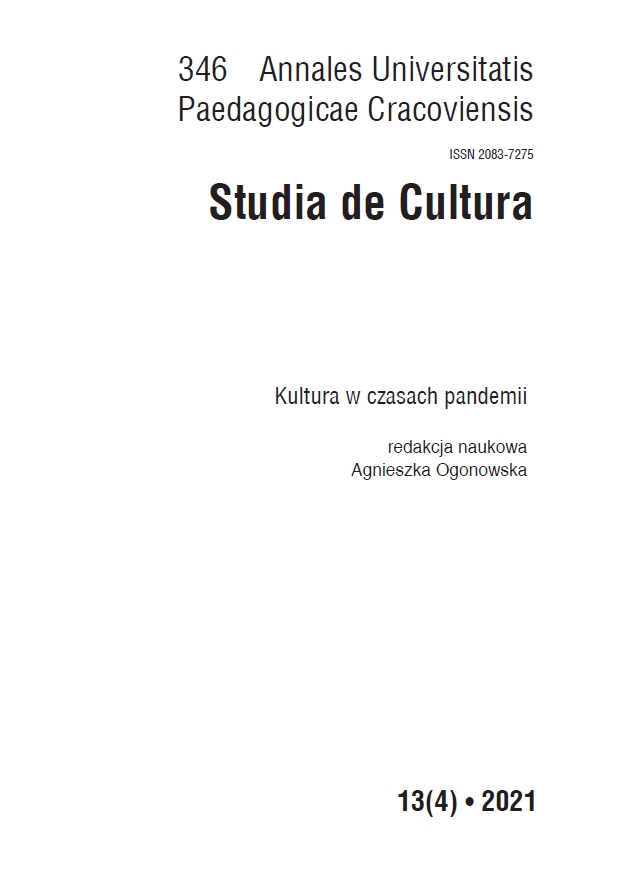Abstract
The review article is an attempt at a media studies analysis of short films made by Polish filmmakers commissioned by the HBO digital platform. They are all in response to the pandemic situation of isolation. The analysis deals with the transgression of artistic attitudes towards danger. In it, I use the tools of contemporary semiology: verbal and non-verbal codes that participate in creating meanings through destruction and a new reading of meanings hidden in film messages. I prove that artists, first of all, commit transgression, negating the existing reality and looking for a new film language that contradicts the Aristotelian structure of the three acts in order to disperse the images and meanings they carry. Secondly, I argue that the deconstruction of codes and the reassembly of meanings proposed by semiologists takes place in the artistic activities in question, as if in the opposite direction. Deconstruction - indeed, but not to discover the truth in a new context, but to look for it in bits of reality that function separately and do not create meanings. They are only separately illuminated and contoured images.
References
Aumont Jacques, Marie Michel. 2013. Analiza filmu. Maria Zawadzka (transl.). Warszawa.
View in Google Scholar
Barthes Roland. 2008. Mitologie. Adam Dziadek (transl.). Warszawa.
View in Google Scholar
Kozielecki Józef. 1976. Koncepcje psychologiczne człowieka. Warszawa.
View in Google Scholar
Metz Christian. 1971. Langage et Cinema. Paris.
View in Google Scholar
Miłosz Czesław. 1945. Ocalenie. Piosenka o końcu świata. Warszawa.
View in Google Scholar
Ollivier Bruno. 2010. Nauki o komunikacji. Teoria i praktyka. Iwona Piechnik (transl.). Warszawa.
View in Google Scholar
Simmel Georg. 1975. Socjologia. Małgorzata Łukasiewicz (transl.). Warszawa.
View in Google Scholar

This work is licensed under a Creative Commons Attribution-NonCommercial 4.0 International License.

